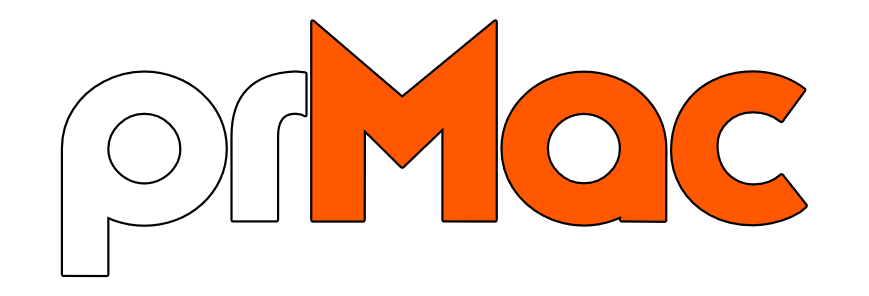Over the past few years, the freelance revolution has accelerated faster than anyone expected. What began as a quiet movement among creative professionals and developers has now expanded into nearly every industry, driven by digital transformation and the global shift toward remote work. Yet one of the most exciting (and perhaps less understood) frontiers of this transformation is the rise of freelance opportunities in artificial intelligence.
AI may sound like a field reserved for computer scientists and engineers, but today it’s becoming far more accessible. Many of the systems that power modern AI, such as language and vision models, depend on human insight to train and evaluate them. This is where freelancers come in. People from all over the world now contribute to the development of intelligent systems by labelling data, reviewing model outputs, and helping refine machine learning models to make them more accurate, ethical, and useful. In other words, the freelance economy and AI are not just intersecting and they’re growing together.
For professionals seeking flexibility, purpose, and growth, this convergence represents a new kind of career frontier. It offers the chance to be part of one of the most transformative technological shifts of our generation, while enjoying the independence and balance that remote freelance work makes possible.
Why Working in AI as a Freelancer Makes Sense?
Traditional jobs often come with rigid structures: fixed hours, commutes, office hierarchies, and limited exposure to new ideas. Freelancing in AI turns that model upside down. It allows people to work on projects that genuinely interest them, collaborate with teams across continents, and do it all from wherever they feel most productive. Moreover, AI-related work is meaningful. By supporting the training and evaluation of intelligent systems, freelancers contribute to the evolution of technology that shapes everything, from education and healthcare to communication and entertainment.
One of the best examples of how accessible and rewarding this type of work can be is found through Outlier, a platform that connects global contributors with projects in AI training and model evaluation. Outlier provides opportunities for individuals to participate in developing advanced AI systems without necessarily having a traditional technical background. Tasks are clear, flexible, and tailored to diverse skill sets, making it possible for anyone motivated to learn and contribute to find their place in this growing ecosystem.
If you’re curious about how this works in practice, Outlier has published a detailed article outlining the top reasons to work on outlier – a helpful guide for anyone wondering what it’s like to take part in this new era of freelance AI work. It explains the flexibility, fairness, and growth potential that come with joining the Outlier community, and how contributors can make a real impact on technology that reaches millions of people worldwide.
From Non-Tech Backgrounds to AI Collaboration
A common misconception about AI is that it’s a space closed off to specialists with advanced degrees or years of coding experience. The ecosystem surrounding AI development relies on a wide variety of perspectives. Freelancers who review data, assess model accuracy, or annotate content play a crucial role in helping machines understand human language, emotion, and nuance. In this sense, AI doesn’t just need coders: it needs people who can think critically, communicate clearly, and apply human judgment.
For individuals from non-technical backgrounds, this represents an extraordinary opportunity to enter the tech world without the barriers that traditionally stood in the way. Teachers, linguists, content writers, and even customer service professionals have successfully transitioned into AI-related freelance work. Their human insight and diversity of thought are precisely what make AI systems smarter and more aligned with real-world expectations.
Platforms like Outlier are pioneering this inclusive approach by making it easy to onboard, learn, and contribute. Contributors receive the guidance they need to perform high-quality work, often discovering that their existing skills – like attention to detail, empathy, analytical thinking – are exactly what AI training needs most. It’s proof that the future of tech is not about replacing humans, but about building better technology with human collaboration at its core.
A Better Way to Work: Flexibility, Balance, and Purpose
In a world where burnout and stress have become common workplace challenges, the appeal of flexible, remote freelance work is stronger than ever. People increasingly value time, autonomy, and meaningful engagement over rigid job structures. Working with platforms like Outlier offers that balance. You can design your schedule around your lifestyle, take on as much or as little work as you want, and work from wherever you feel most inspired (whether that’s a home office, a shared space, or a café halfway across the world).
But flexibility is only part of the story. Many freelancers also find deep satisfaction in knowing their work contributes to something larger: shaping the AI systems that power the next generation of digital tools. Every labelled dataset, every evaluation task, every refinement helps move technology closer to being transparent, fair, and genuinely useful. Freelancing in AI becomes more than a job: it becomes participation in a collective effort to make the future of tech more human.
What makes this lifestyle particularly appealing is its inclusivity. Whether you’re a student looking for extra income, a parent seeking balance, or a professional exploring a career shift, there’s space for you. Outlier’s global contributor community thrives on diversity, different perspectives, languages, and experiences that enrich AI development. The work is collaborative yet independent, structured yet flexible, challenging yet rewarding.
Shaping the Future of Work Through AI Collaboration
As AI continues to evolve, so does the nature of work itself. The relationship between humans and intelligent systems is no longer one of competition: it’s collaboration. Freelancers who contribute to AI training are, in many ways, shaping the very tools that will define the modern workplace. They ensure that these systems understand context, language, and fairness. They give machines the ability to assist, not replace, and to serve, not dictate.
The rise of remote freelance AI work signals a broader cultural shift. It reflects a desire for autonomy without isolation, for meaningful engagement without bureaucracy, and for learning without boundaries. It’s a reminder that technological progress isn’t just about code: it’s about people coming together, virtually, to build something better.
Outlier exemplifies this spirit by offering opportunities that merge flexibility, learning, and contribution. For anyone looking to redefine their career, embrace freedom, and join a movement that sits at the intersection of innovation and humanity, there’s never been a better time to explore the reasons to work with Outlier and discover how you can take part in shaping the AI systems of tomorrow.
The world of work is changing fast, but one thing is certain: the future belongs to those who adapt and those who are willing to build it. Freelancing in AI through platforms like Outlier offers not just a way to earn a living, but a way to be part of something meaningful, global, and enduring.

